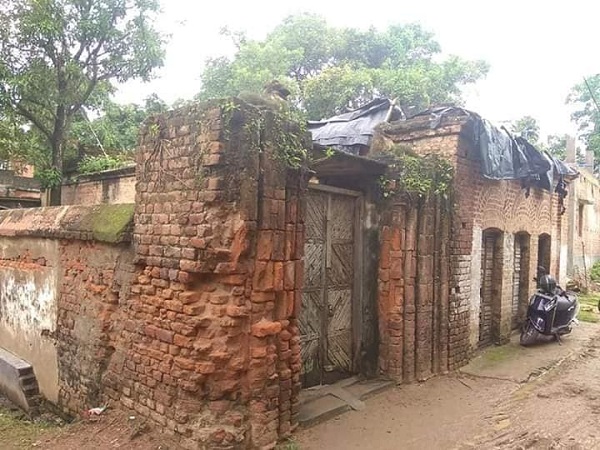Kolkata, (Asian independent) As one reaches Uyari village of Khandaghosh community block under West Bengal’s Purba Bardhaman district, he is bound to be gripped by the essence of India’s freedom movement associated with this remote village.
The point of attraction is not any well-maintained museum, nor any flashy memorial. Rather the nostalgia is associated with a dilapidated building with an underground room that sheltered legendary freedom fighter Bhagat Singh for around 15 days in 1928.
Incidentally, this remote village also houses the ancestral residence of legendary freedom fighter from Bengal and Bhagat Singh’s close associate, Batukeshwar Dutt.
On December 19, 1928, when Bhagat Singh and Shivaram Rajguru went absconding after killing British police officer, John Saunders. According to the records of the Batukeshwar Dutt Conservation Trust, on the advice of Dutt, Bhagat Singh came to Uyari village and took shelter at Dutt’s ancestral residence at the same village.
However, soon they felt that shelter was not safe for Bhagat Singh since the British police and spies had already become active in the area. As per records, Dutt decided to shift Bhagat Singh to a house, owned by a Ghosh family in the same locality, which had an underground room that was not easily detectable from outside.
Accordingly, Dutt contacted the members of the Ghosh family, who were sympathetic towards the freedom fighters.
For the next 15 days, that underground room, the entrance of which was covered by a wooden showcase, was the shelter of Bhagat Singh and Dutt. It is said that a major part of the planning for the Central Assembly building bombing was discussed by the two legendary freedom fighters during their underground stay.
According to the members of the trust, the role of the Ghosh family and the underground room at the house had remained unsung in the history of freedom movement, and it is difficult to say that without the existence of this underground room Bhagat Singh could have escaped the eyes of British and accomplish his bigger target of Central Assembly building bombing at Delhi on April 8, 1929.
Both Bhagat Singh and Dutt were arrested. While Bhagat Singh was hanged to death and Dutt was released from the prisons in 1938. Dutt was also deported to Cellular Jail in Andaman and Nicobar Islands.
According to Raktima Dutt, a retired teacher of history and a specialist in the Indian freedom movement, there had always been a similarity in the functional pattern of the freedom fighters of Bengal and Punjab. “Probably that is why Dutt and Bhagat Singh became great confidants of each other that during the crucial time of hiding from the British police and spies, Bhagat Singh relied on Dutt for his shelter and later on, Dutt was his companion in the Central Assembly bombing,” says Raktima.
She added that it is the duty of the government to conserve this historical house and preserve it as a freedom movement memorial. “It is sad that it (the house) is in such a dilapidated state. Had it been elsewhere by now that house would have a popular haunting spot for historical researchers,” she asserts.
The existing members of the Ghosh family, who owns that house, have already approached the state government with a proposal that if they are provided an alternative accommodation nearby then they are willing to vacate the house and hand it over to the state government.
It is learnt that there were certain complications about the documents relating to the property ownership, which by now has been resolved.
Members of the trust are in touch with the state government so that the latter takes over the house after arranging alternative accommodation for the members of the Ghosh family and conserve it. The trust also want that as a mark of respect to the Ghosh family for their contribution, the assignment of maintaining the house be left to the existing members of the family.








